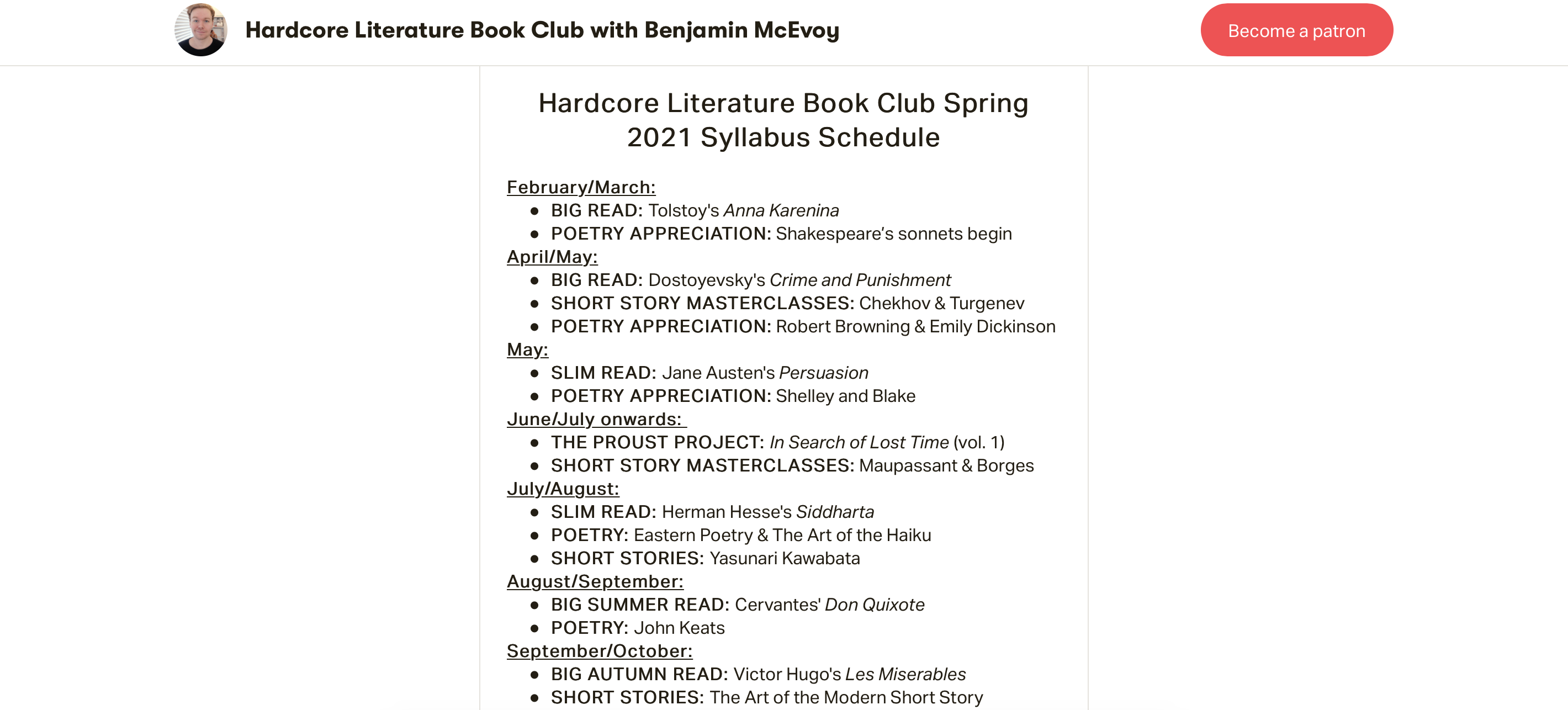You might know that we’ve got Dostoyevsky’s Crime and Punishment on the horizon in the Hardcore Literature Book Club.
We’re going on a trip to 1866 Saint Petersburg – a thrilling trip through hell.
This is a very different novel from our first Big Read, Anna Karenina.
Learning to read Tolstoy is learning to sharpen our skills of empathy, improve our self-talk and how we talk to others.
When one finishes their first read of Anna Karenina, one has gone on a journey through vengeance, judgement, and scorn, and, hopefully, arrived at a position of compassion.
Learning to read Dostoyevsky is different.
Tolstoy is an objectivist, a collectivist, a socialist, and a tragedian (an Iliad artist, so to speak).
Dostoyevsky is a subjectivist, an individualist, a psychologist, and a romantic existentialist (more of an Odyssey writer).
Both writers arrive at a plane of spirituality, but the paths they weather to get there differ.
Tolstoy begins outside, with the flesh, and goes inwards.
Dostoyevsky, dramatist of the individual, expands outwards.
Tolstoy is a realist, and crafts psychologically complex people operating in a universe no different, perhaps more real, than our own.
Dostoyevsky creates characters, ideas dressed up in clothing and walking around a nightmare landscape.
Learning to read Dostoyevsky is learning to read the Bible.
One used to be able to assume a certain level of biblical familiarity in students coming to Humanities courses.
The Bible is high wisdom literature that has influenced everybody in the western tradition. But it’s under-taught and undervalued today.
And that’s precisely why we need Dostoyevsky more than ever.
Crime and Punishment is about division – the main character’s name (Raskolnikov) literally refers to division.
Dostoyevsky’s generation was one that thoroughly lived Nietzsche’s dictum that “God is dead”. A generation lost their sense of meaning overnight and were suddenly faced with needing to reconstruct a new one, a more personal meaning.
Why read Crime and Punishment in 2021?
Why read outwards and read the Psalms, the Book of Job, and the New Testament in 2021?
Why read existential philosophers like Kierkegaard, Sartre, Camus?
Because we are divided.
Internally and externally.
Nationally and globally.
And it’s time to learn to reunite.
So we’ll be reading Crime and Punishment together as part of the Hardcore Literature Book Club.
There are six parts to this novel, so we are going to split it over 6-8 weeks.
We’ll have some prepatory video lectures and discussion, and then kick off the fun together.
Here are some of the forthcoming prepatory Crime and Punishment videos:
- A Guide to Reading the Bible in an Expansive Way
- Gateway to Existential Philosophy
- How Dostoyevsky came to write Crime and Punishment
- The themes and Genre of Crime and Punishment
- Tolstoy vs Dostoyevsky – How to Weigh Your Books
- Meet the Characters of Crime and Punishment
Yesterday, this video went up:
And the past week has seen videos on how Tolstoy writes women so well, secrets in Anna Karenina, advice on what to do when you finish Anna Karenina (or any Great Book you’ve fallen in love with), and some tips for digesting Dostoyevsky.
We also now have a contents page pinned at the top of the Book Club for easy navigation amongst the different topics – with lots more happening behind-the-scenes (dedicated forum, anybody?).
The Book Club is completely self-paced and if you get involved today you also have access to the back catalogue of Anna Karenina videos (which includes lectures on Plato, Freud, Nietzsche, Shakespeare, and more)
We’ve got some great Big Reads coming up over the course of this year – Austen, Proust, Hesse, Cervantes, Hugo, Shelley, James, Eliot, Dickens, and many more.
And you’re warmly welcome to join the fun.
